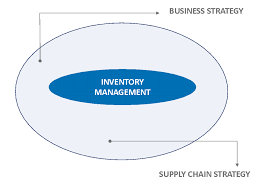The role of inventory management systems in the supply chain is an important part of guaranteeing an efficient and accurate supply-chain lamborghini huracan rental dubai. Inventory management can be difficult to handle without a good system or process, but there are alternatives for finding a balance between time and cost.
What is Supply Chain Management?
Supply chain management is the process of planning, organizing, and executing a supply chain to ensure the efficient flow of goods from the supplier to the customer. It encompasses activities such as product procurement, inventory control, warehousing and distribution.
One of the key aspects of a successful supply chain is effective inventory management. Inventory management systems (IMS) play an important role in facilitating efficient and accurate tracking of products in a supply chain. IMSs help identify and track the sources, quantities, and status of products throughout the supply chain. This information can then be used to make informed decisions about product allocation and inventory levels.
What are Inventory Management Systems?
An inventory management app is a system that helps businesses track, manage and allocate the inventory they possess. An IMS can help companies optimize their supply chains by providing an accurate and up-to-date view of what is available to purchase and where it is stored.
How does an inventory management system work?
There are three main components to any inventory management system: an inventory database, a product data warehouse, and an order processing system. The inventory database stores information about the quantity, quality, and location of all the company’s inventory items.
The product data warehouse stores information about the products that the company sells. This information can include information about how much each product is selling for, how often it is being replaced, and where it is being sold. Orders are processed by the order processing system in order to fulfill customer orders.
The Role of Inventory Management Systems in the Supply Chain
Inventory management systems (IMS) have become an integral part of a company’s supply chain due to the decreasing value of inventory and the rise in demand. They help businesses optimize their inventory levels, reduce costs, and increase efficiency. In this blog, we will discuss the different types of IMS and their roles in the supply chain.
Types of Inventory Management Systems
There are three main types of IMSs:
1) product-based IMSs;
2) process-based IMSs;
and 3) hybrid IMSs.
Product-based IMSs track products as they move through the supply chain from raw materials to finished products. This type of system is best for companies that produce a limited number of products. Process-based IMSs track products as they move through the supply chain from manufacturing to delivery to customers. This type of system is best for companies that produce a wide variety of products or services. Hybrid IMSs combine elements of both product- and process-based IMSs.
According to Fortune Business insights, The global paints and coatings additives market size was USD 8,299.7 million in 2019 and is projected to reach USD 12,659.4 million by 2027, exhibiting a CAGR of 5.9% during the forecast period paints and coatings additives market.
Technology and the Future of Inventory Management Systems
Inventory management systems (IMS) play an important role in the supply chain by optimizing and managing the flow of materials and supplies through a business. While there are many different IMS technologies available, the future of IMS looks to be more reliant on big data and artificial intelligence (AI).
Big data is already being used to improve inventory accuracy, while AI can help automate processes and optimize inventory levels to improve operational efficiency. Additionally, IMS can help businesses track and analyze inventory levels across different channels and markets range rover for rent in dubai. As such, IMS will continue to play an important role in the future of the supply chain by helping businesses manage their resources more effectively.
Conclusion
Inventory management systems are essential in the supply chain, as they help to keep track of both raw materials and finished goods. Understanding what IMS can do for your business is key if you want to ensure that products reach their destination in a timely fashion and without any hiccups. By using an IMS, businesses can optimize their production processes and track inventory levels more accurately than ever before. Finally, you can read more reviews about tech solutions for business and software on bestreviewlist.com or listofreview.com to manage and grow your business
Read more: redmi note 11 price in pakistan










Greetings! Very helpful advice in this particular article! It is the little changes which will make the most important changes. Thanks a lot for sharing!
Some really excellent info I look forward to the continuation.
A big thank you for your blog.Really looking forward to read more. Want more.
Thank you for great content. I look forward to the continuation.
Some really excellent info Sword lily I detected this.
it’s awesome article. I look forward to the continuation.
Comments are closed.